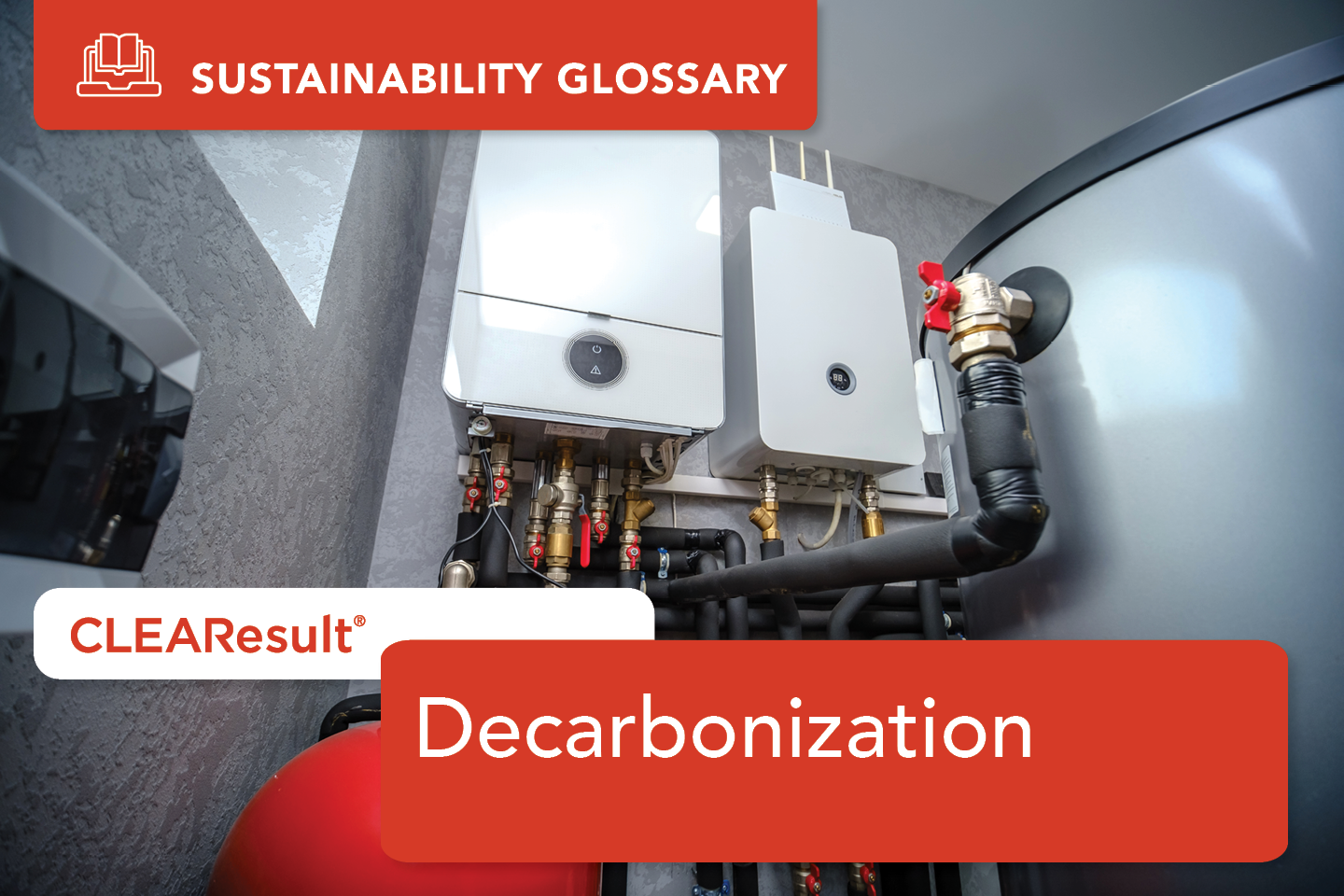Decarbonization

What is decarbonization?
Decarbonization refers to the process of reducing or eliminating the carbon content, particularly carbon dioxide (CO2) emissions, from activities, industries and systems that contribute to human-induced climate change. It involves a comprehensive set of strategies and actions aimed at lowering carbon emissions across various sectors, promoting sustainable practices and supporting the global transition to net zero (See Glossary: Net Zero). Achieving net-zero emissions requires shifting from fossil fuels to low-carbon energy sources. (Source: Carbon Impact Partners.)
Why is decarbonization important?
The current impacts of climate change – drought, floods, heatwaves, and other extreme weather events – are having a devastating impact on people, species and ecosystems. (Source: United Nations Climate Action.) Decarbonization is a crucial strategy in the global response to climate change, aiming to limit the rise in global temperatures and mitigate the adverse effects associated with increasing greenhouse gas concentrations in the atmosphere. Achieving widespread decarbonization requires coordinated efforts across sectors, industries, governments and communities.
Achieving widespread decarbonization requires coordinated efforts across sectors, industries, governments and communities.
What goals have been set for decarbonization?
The 2015 Paris Agreement set a goal to limit global warming to well below 2°C above pre-industrial levels and pursue efforts to limit it to 1.5°C by 2050. (Source: United Nations Climate Action.) Pursuing net carbon neutrality is a major part of this effort. In the U.S., the Department of Energy has developed a blueprint for decarbonizing buildings by 2050, laying out a national strategy for aggressively reducing building greenhouse gas emissions. (Source: Office of Energy Efficiency and Renewable Energy.)
How CLEAResult supports decarbonization
We help clients create holistic decarbonization plans that empower them to become sustainability leaders in their sector. Our consultants measure your carbon emissions and analyze your energy use trends, then set decarbonization goals and track your progress toward them.